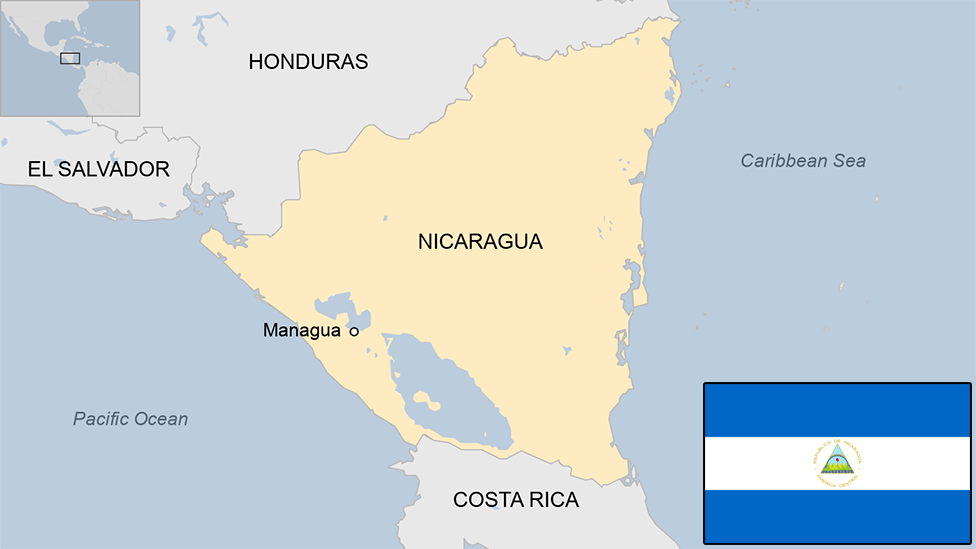Nicaragua canal construction 'will not begin until 2015'
- Published
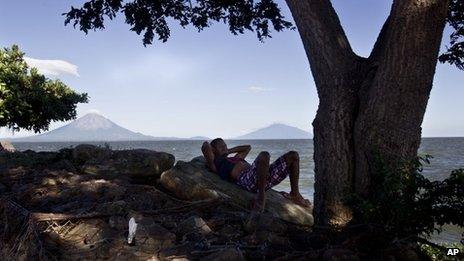
The government says the waterway will bring prosperity to the region
The construction of a canal in Nicaragua linking the Atlantic to the Pacific Ocean has been delayed by a year and will not begin until 2015.
The head of the canal authority, Manuel Coronel Kautz, says more time is needed to carry out feasibility studies and choose a route.
The estimated cost of the projected waterway is $40bn (£25bn).
Environmentalists says Nicaragua's alternative to the Panama Canal will bring permanent risk to the region.
President Daniel Ortega had said Nicaragua planned to begin construction in May 2014.
He says the project will give the Central American nation - one of the poorest in the region - its "economic independence".
But Mr Coronel Kautz said construction would now "probably" begin next year.

Daniel Ortega (left) and Wang Jing (right) signed a concession agreement in June
He told La Prensa newspaper in Nicaragua that only when the feasibility studies were concluded would it be possible to choose a "definite route".
Several routes were proposed, all of them about three times longer than the Panama Canal, which took 10 years to build and was finished in 1914.
The waterway connects the Caribbean with the Pacific via Lake Nicaragua or Cocibolca, Central America's largest freshwater lake. Its length is estimated at just under 300km (190 miles).
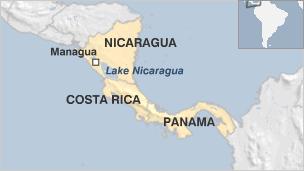
Hong Kong-based HKND Group was given a 50-year concession by Nicaragua's Congress in June 2013.
The Nicaraguan government will get a minority share of the profits generated by the canal.
Critics of the project in Nicaragua challenged the company's credentials and said it did not have the necessary experience to undertake on such a big project.
But HKND's owner, Wang Jing, said he had attracted global investors and it was ready to build the canal in less than six years.
Nicaraguan leaders have dreamt of building the canal for over a century.
Environmentalists have warned that cargo ships will damage Lake Nicaragua.
Nicaragua's announcement comes after a European-led consortium expanding the Panama Canal threatened to halt work unless the Panama Canal Authority met more than $1.6bn (£1bn) in cost overruns.
- Published13 June 2013
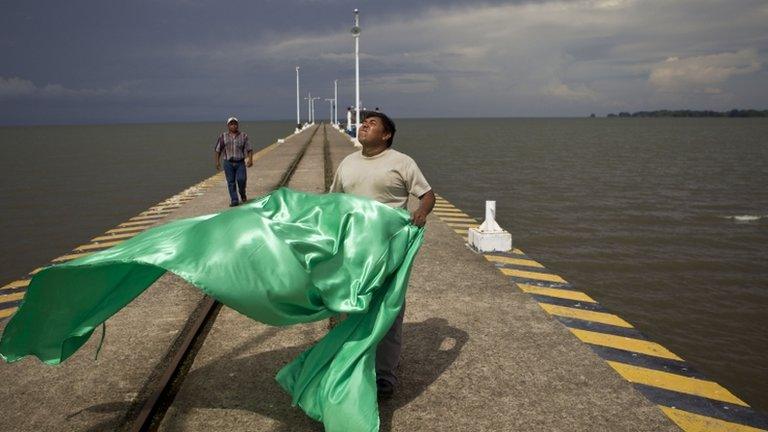
- Published3 January 2014
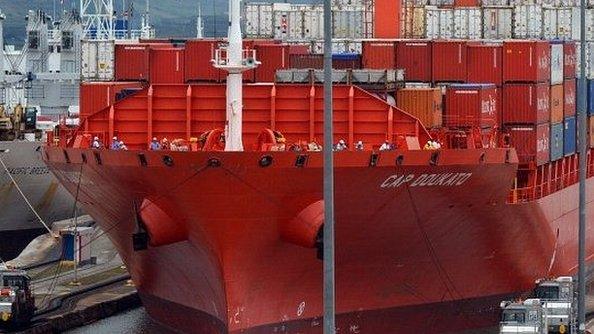
- Published31 December 2024
